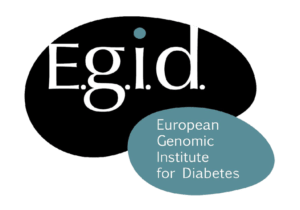In a study published in the journal Nature Genetics on January 8, 2018, the international research team Franco-British led by Professor Philippe FROGUEL, joint research unit 8199, integrated into the European Genomic Institute for Diabetes – EGID – Research Federation FR 3508 – University of Lille, CNRS, Inserm, Lille University Hospital, Institut Pasteur de Lille – and the ‘Imperial College London has just discovered a new gene whose genetic abnormalities lead to severe obesity in children. This gene called Adenyl Cyclase 3 (ADCY3) produces an enzyme whose role is to break down the energy-rich molecule ATP to transform it into a metabolite that controls appetite in the brain and energy expenditure in adipose tissue. In addition, this gene regulates the production of a hormone called GLP1 in the gut, which is currently used as an injectable medicine for diabetes and obesity. ADCY3 is considered a new therapeutic target for metabolic diseases.
Professor Philippe Froguel’s team was the first to discover genes responsible for family obesity. Thus, a dozen different genes have been identified whose function is to regulate food intake in the brain. About 5% of obese children in Europe have a mutation in one of these genes. The Franco-British team recently demonstrated that 30% of obese children from populations with high inbreeding like in Pakistan had a genetic abnormality of this nature, which suggested that other genes remained to be discovered. The geneticists then sequenced all the genes of 138 obese children and parents from consanguineous families in the province of Lahoré in Pakistan. They found 3 Pakistani families and later an American family with mutations that inactivated ADCY3 enzyme activity. Beyond these very deleterious but rare mutations, frequent variations in DNA with a weaker effect of ADCY3 modulate the weight of European populations. Finally, an independent study has shown that a mutation rare in Europe but common in Greenland leads to obesity and diabetes.
All these data demonstrate the importance of ADCY3 in energy regulation and make it a very good therapeutic target. This work also shows the interest of sequencing the human genome as it is carried out in the Equipex LIGAN-Personalized Medicine platform in Lille to elucidate frequent diseases such as obesity and diabetes and to open up new therapeutic avenues.
Obesity affects more than a billion people today and is a major risk factor for many metabolic, cardiovascular and cancer diseases. The most effective treatment is surgery which is associated with severe side effects but is usually not possible in children. Following the genetic discoveries of Professor Froguel, new effective drugs targeting the MC4R and leptin receptor genes are being evaluated in humans but cannot on their own be sufficient to treat all the very obese.




